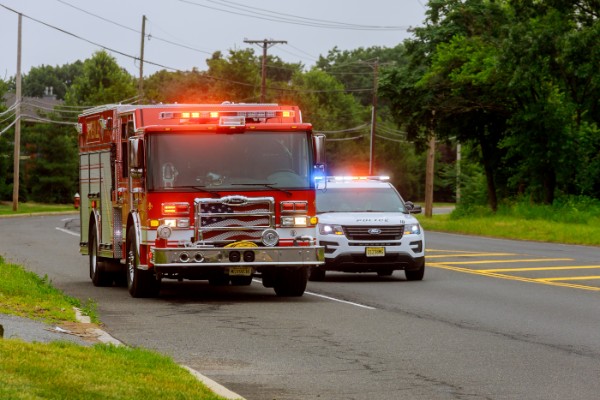
Whether you are out of state visiting friends, on vacation, or you are traveling for work, being in an auto accident can only add to the stress that comes naturally from traveling. Now, you are in an unfamiliar place, dealing with hospitals you do not know, and trying to figure out your rights so that you can receive fair compensation.
A motor vehicle accident, regardless of how far away you are from home, will change your life. Not only are you now dealing with physical pain and mental suffering, but you are also dealing with the stress of being involved in a traumatic event. Worse, you are overwhelmed by being out of your comfort zone, and you may be in this new area for weeks or months, depending on how serious your injuries are.
If you have been seriously injured in a car crash out of state, you need to know what actions to take right away. Regardless of your coverage status, you want to make sure you receive maximum compensation for your injuries – especially if the other party caused that accident.
Some Post-Accident Steps Stay the Same Regardless of the State
In most cases, the post-accident steps you take will be the same even if you were in an accident 5 miles away from home. These include:
- Checking yourself and your passengers for injuries. First, you need to check yourself and any passengers in the vehicle with you for serious injuries. Even if you feel fine, plan on visiting the local emergency room. But if anyone has critical or life-threatening injuries, call 9-1-1 immediately.
- Report the accident to the local police department. When you call 9-1-1, law enforcement is automatically dispatched. If, however, you do not have any serious injuries and you do not feel like calling 9-1-1 is necessary, then you need to contact the local police department and report the accident. Every state has its own rules for when you need to report, and usually, they are based on the damage amount. It is best to call and explain you are from another state and see what they recommend. Regardless, do not leave the scene unless you are told specifically by law enforcement to do so.
- Exchange information with the other driver. Regardless if you have a police report, do not rely on the officer to get all the necessary information. What they need for an accident report is not always what you need for a claim. Make sure you get the name of the driver, the full name of any passengers, their address, phone number, driver’s license, insurance card, policy number, and claim’s hotline. Also, get the make, model, and color of the vehicle involved in the accident.
- Get eyewitness information as soon as you can. If anyone witnessed the accident, make sure you get their contact information – including name, phone number, and address. You will need this to follow up later, especially if you end up filing an injury claim against the at-fault driver. The police officer may not get this information for their report, so do not rely on them to gather it for you.
- Contact your insurance provider. You will still need to report the accident to your insurance. Most insurance policies have provisions that require you to report an accident within so many days, or you will no longer qualify for coverage. Therefore, do not delay this step. Contact them immediately, and let them know you were in an accident and give them the other driver’s information.
Contact an Attorney as Soon as You Can
First, take care of yourself by seeking medical treatment immediately. Then, hire an injury attorney. You can always meet with a local attorney while you receive treatment before heading home, but the sooner you involve an advocate the better it will be for your case. You need someone to point you in the right direction and start the process as well as inform you of your rights.
Most importantly, depending on the state where the accident occurred, you will need an attorney to determine:
- What state you can file your injury claim in
- How you file your insurance claim
Where Do You File an Injury Lawsuit for an Out-of-State Accident?
The biggest question is where to file. Do you have to file a lawsuit out-of-state and appear in court? After all, that would be a burden on you having to travel just to settle a case. In most states, you will have two options for filing your lawsuit, which includes:
- Filing in the state where the at-fault party lives. You can file your injury lawsuit in the state where the at-fault party lives (whether that is the state where the accident occurred or elsewhere).
- Filing in the state where the accident occurred. You do have the option to file your lawsuit in the state where the accident occurred, regardless of where the defendant resides.
Can’t I File the Lawsuit in My State?
Unfortunately, most states will not allow you to file a lawsuit in the state where you reside, which can make it hard if you live across the country.
Regardless, you will want to pick the area where you plan to file, and then hire an injury attorney that works in that area. You want an attorney familiar with the local courts and registered to represent clients in that state.
Injured in the State of Washington?
If you or a loved one is from out of state, but you were injured in the state of Washington or by a Washington resident, contact the team at Brett McCandlis Brown & Connor, PLLC, today. Our team is here to make sure that you get the compensation you deserve and make the process of filing a claim against a person from another state as easy as possible.
We work hard to negotiate and try to settle out of court so that you do not have to return to the state or pay extensive travel fees as well.
To get started, contact our team now to schedule a free case evaluation, or contact us online with your questions about how we handle out-of-state accident cases.


